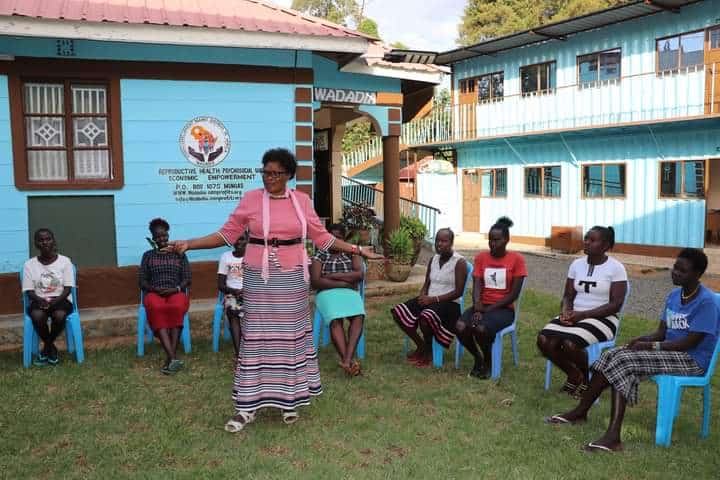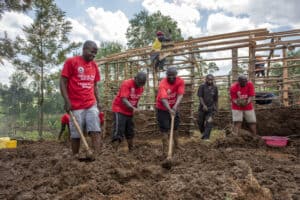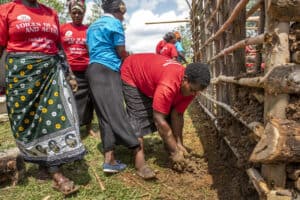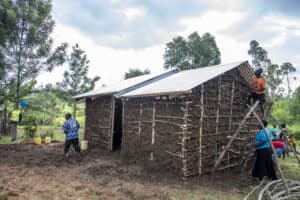The story of one woman’s reintegration into Kenyan society
After a woman receives life-transforming treatment for a childbirth injury such as fistula, she doesn’t automatically “return” to society. Most of the women whom we help have been isolated for so long that the road to recovery extends far beyond treatment.
Women who suffer from incontinence are often forced from their homes. Once healed, they may not have their own space to return to. That was the case for Frida, a 46-year-old woman from Kakamega County, Kenya.
Frida developed fistula in 2002, during the delivery of her third child. She endured a prolonged, obstructed labor that lasted for one week. Miraculously, her child survived, but Frida was left leaking urine uncontrollably.
“I was very embarrassed,” said Frida. “You could be traveling to a respectable place, and when you stand up, you are wet, and at the same time you are smelling. So I had a very difficult time from June 2002 onward.”
Frida did not know about the condition of fistula. She suffered from the incessant leaking for 19 miserable years.
“I have gone through a lot with my children,” Frida said. “After I got fistula, I lost my marriage, because their father mistreated me, chased me, and demolished our house. He said that he could not live with me because I was stinking. He denied me, and he denied the children. So I had to take my kids back to my mother’s home, and I lived with them there, up until now.”
Frida’s mother was her only source of solace. She urged Frida not to be discouraged, and to trust that—one day—God would rid her of her agony. Frida had frequent thoughts of suicide, but she didn’t want to burden her mother with raising her children, so she continued living in turmoil.
As her mother prophesied, Frida’s “one day” came in 2021, when she reconnected with Florence, an old friend who works for our outreach partner Women and Development Against Distress in Africa (WADADIA). Upon reconnecting with Frida, Florence immediately recognized Frida’s symptoms. Florence talked with her friend and screened her for fistula. Then she wrote her a letter of referral to seek treatment at our partner Cherangany Nursing Home in Kitale, Kenya.

Frida was successfully treated at Cherangany and soon returned home. But her inner demons did not abandon her, and her soul still carried the burden of nearly two decades of suffering. She wanted to do something with her life, and she wanted to live in her own home.
Staff at WADADIA encouraged Frida to join a support group for survivors, and to take classes in computer skills and tailoring. With this support, Frida flourished. But WADADIA went even further. Members of her support group knew that Frida had always wanted a home to call her own. In 2022, they set about constructing that home on land owned by Frida’s family.


Fistula survivors in the Kakamega County support group at Women and Development Against Distress in Africa (WADADIA)
build a two-room home for Frida, a fistula survivor.
Today, Frida is proud to be settled in her own home. She is grateful to WADADIA and the donors who enabled her treatment and reintegration into society.
“My hope for the future is that I will remain connected to WADADIA, because through that organization I have gone far,” said Frida. “I am being empowered, and I know that I am going to become a mighty woman. I can see that my future is bright. I have a home, a shelter to cover myself. I will rear cows, chickens, and I will [grow] in the place that I call my own home.”

Published on February 24, 2023
